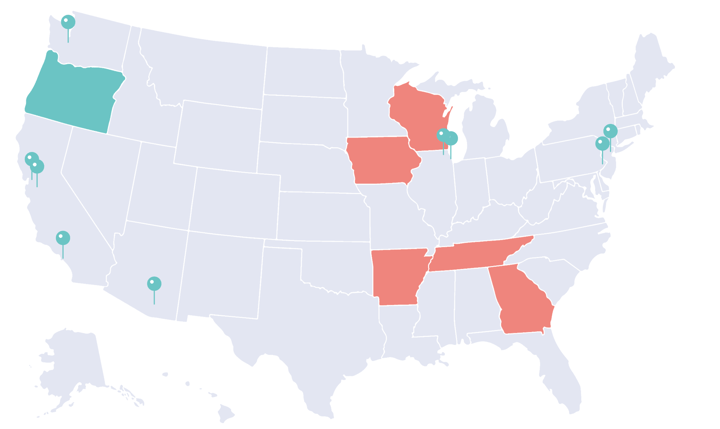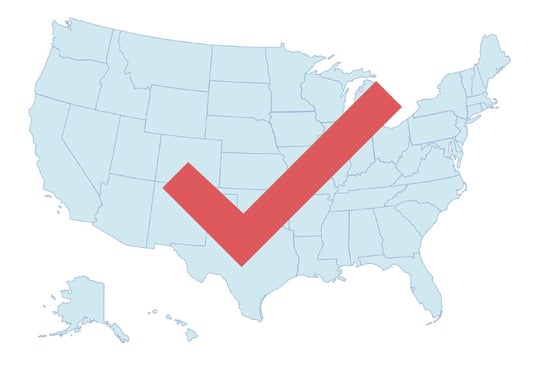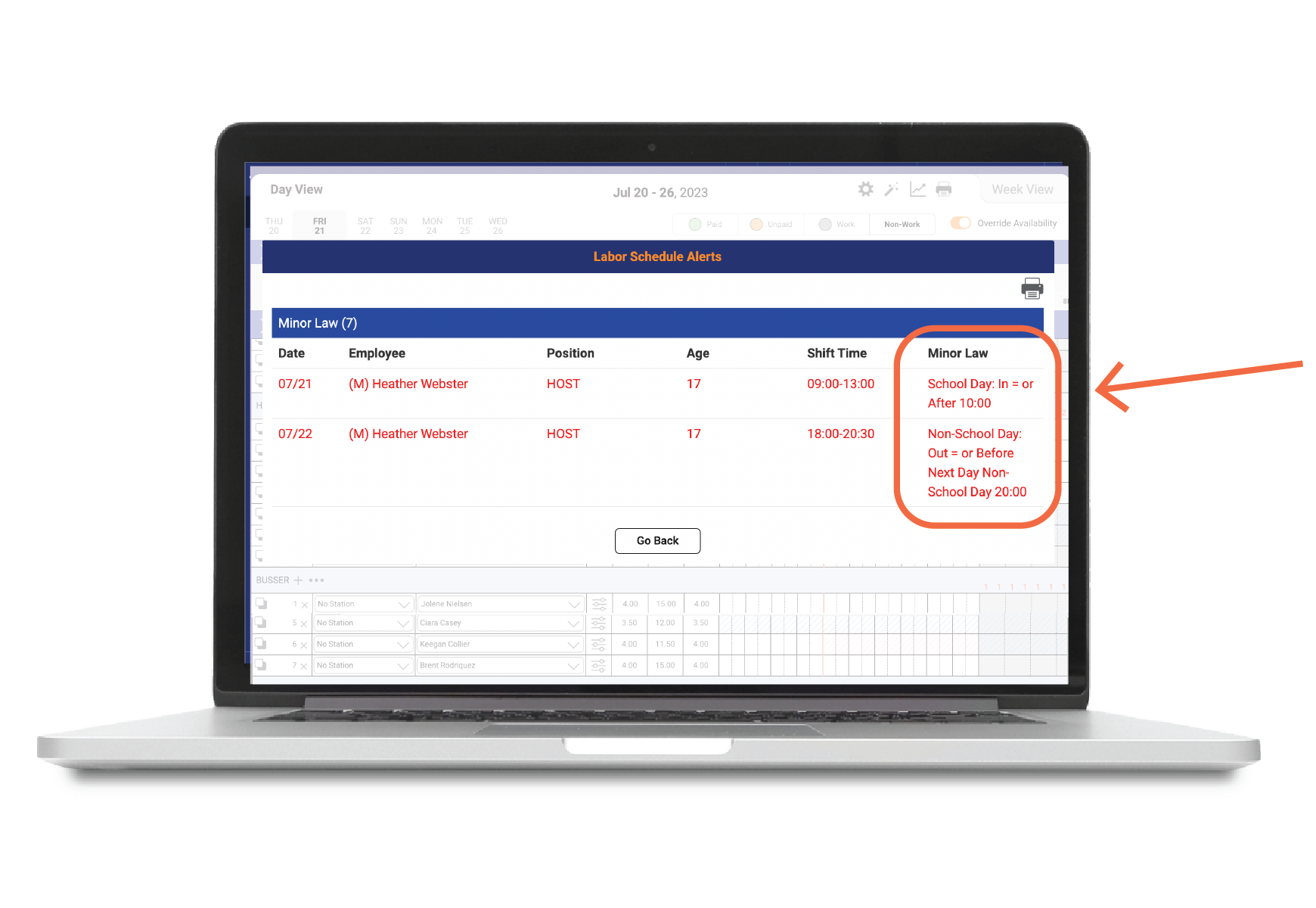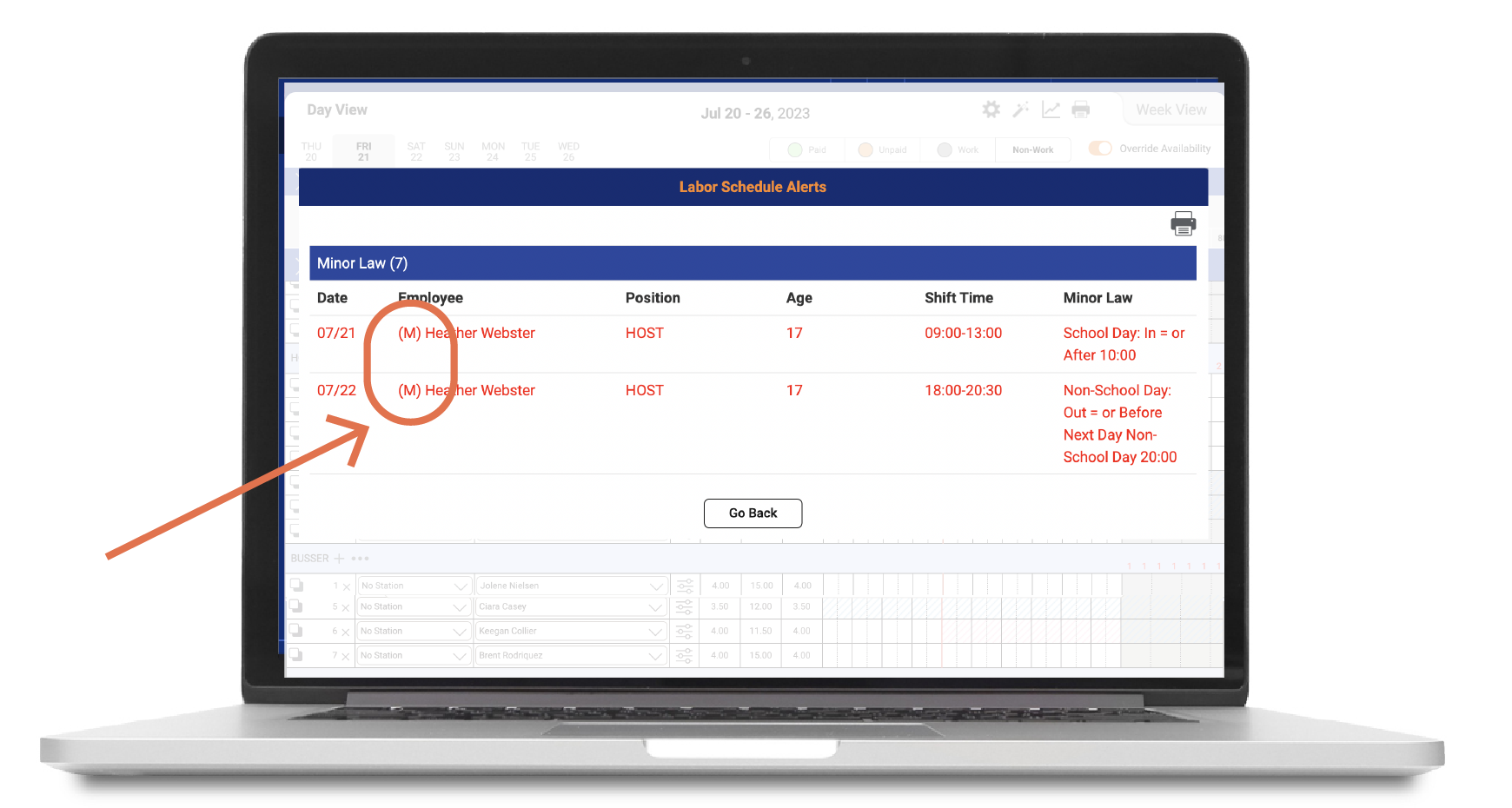
- Home
- Crunchtime Blog
- Employing Minors in Your Restaurant this Summer? 4 Ways to Maintain Compliance

Employing Minors in Your Restaurant this Summer? 4 Ways to Maintain Compliance
With summer in full swing, now is the perfect time to revisit minor law compliance for your restaurant.
Seasonal summer jobs employ millions of minor-aged workers each year, with the foodservice industry leading as one of the top employers of underaged workers. In some jurisdictions, quick-service restaurants can employ minors as young as 14 and 15 years old, but there are a number of conditions that must be met.
The restaurant industry has recently been under scrutiny for violating minor laws and child labor law compliance has become a top concern for the federal government.
According to the US Department of Labor (DOL), violations of child labor laws are up 69% since 2018. In response, the DOL has reaffirmed its commitment to preventing child labor law violations by launching new programs and efforts that are targeted at educating businesses and increasing awareness.
Fortunately, restaurants can avoid these hefty penalties by being proactive, prepared, and educated when it comes to providing a safe and compliant workplace environment for minors. The first line of defense that restaurants have against minor law violations is utilizing a labor management platform that prioritizes compliance. A compliant scheduling platform should allows your operation to adjust labor rules to accommodate different laws, including Fair WorkWeek.
Related Read: The Restaurant Operators Guide to Fair Workweek
At Crunchtime, we understand the complexity of minor labor laws and we know that it only gets more complicated with the greater number of locations you operate. Crunchtime Labor & Scheduling offers multi-unit restaurants a variety of flexible features and functions they need to maintain compliance.
Here are 4 Ways You Can Use Crunchtime to Maintain Compliance with Minors
1. Regularly review the labor rules configured for each jurisdiction
The best way to avoid violations is to keep all of your stores prepared with up-to-date labor rules configured in your labor management platform. As a best practice, your system administrator should regularly review the labor rules that have been configured to accommodate different labor laws in different states or jurisdictions.
From Maryland to California, Crunchtime’s labor rules are highly flexible and can handle a variety of minor scheduling restrictions to ensure that underaged workers are never scheduled beyond the configured threshold for their available hours. When any of your managers log in to Crunchtime to create a schedule, they will all experience the exact same interface, no matter what state they are in, or what labor rules have been applied for their specific store location. This cohesiveness makes it easier to create compliant schedules and manage labor costs across all of your different store locations. 
Crunchtime’s labor rules are highly configurable and can accommodate minor laws across all 50 states and every jurisdiction in the US.
2. Use your configured labor rules during scheduling
Before a manager ever creates a schedule, the Crunchtime platform will already determine a number of rules including how many hours a minor can work in a day, in a week, or the number of days per week, and how late or early they can work during school days and on the weekend.
The platform predetermines limits for their shift starting times, ending times, school day limitations, weekends they can work, and more – all based on their date of birth. We can even accommodate for holidays. If a minor has a waiver to work extended hours, the platform can also accommodate this requirement. By setting up labor rules for minors in advance, it dramatically decreases the chance of a minor being mis-scheduled. When creating schedules, Crunchtime automatically alerts the user if a minor law is violated. The alert includes the exact rule with the associated shift so the schedule can be easily edited for compliance.
When creating schedules, Crunchtime automatically alerts the user if a minor law is violated. The alert includes the exact rule with the associated shift so the schedule can be easily edited for compliance.
3. Easily identify minors during scheduling
When managers build schedules, Crunchtime clearly indicates which employees are minors. This awareness keeps managers informed from the start, and helps prevent minors from accidentally being over-scheduled. If a manager tries to overschedule a minor, the platform will automatically deny the request. 
Employees who qualify as minors are always listed with an (M) before their name in the system as a helpful reminder to managers.
4. Dismiss minors on time with real-time alerts
Crunchtime provides managers with real-time alerts on the dashboard that show when a minor employee’s shift is coming to an end. The summer months bring more hours of daylight which can inadvertently extend your employees' scheduled work time. This proactive alert is an easy way to keep your managers informed about when to send minors home and avoid any hefty penalties. ![]()
Alerts serve as a helpful reminder to your managers about making sure all minors are dismissed at the end of their shifts.
In today’s competitive foodservice industry, restaurants need to be prepared to offer minors a safe and compliant workplace environment. Fortunately, restaurants can leverage a modern labor management platform as a solid foundation for maintaining compliance. And remember, staying compliant is a team effort, that is worthwhile in the long run.
Ready to learn more?
Let's get the conversation started. Reach out for a customized demo and learn how Crunchtime can help your restaurant maintain compliance with labor laws. 
Share this post
Related


The Restaurant Operator’s Guide to Fair Workweek

